Christmas in Bethlehem: Muslims and Christians celebrate together in the Holy Land
But violence continues in Jerusalem and the West Bank
A free daily email with the biggest news stories of the day – and the best features from TheWeek.com
You are now subscribed
Your newsletter sign-up was successful
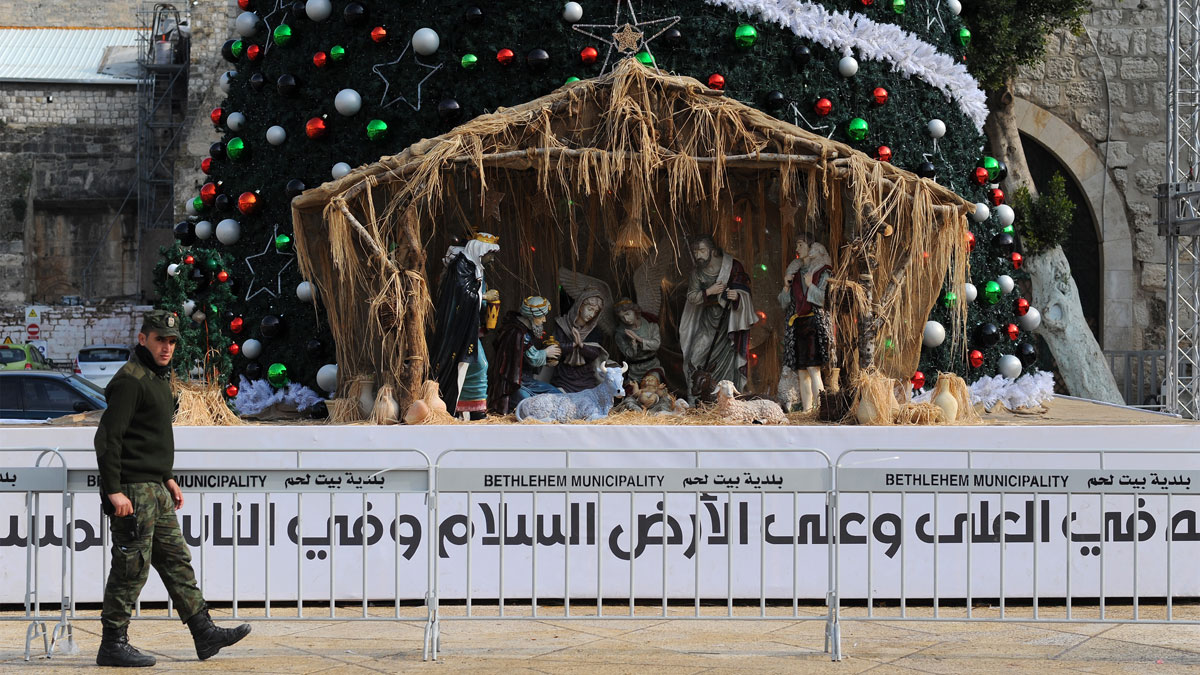
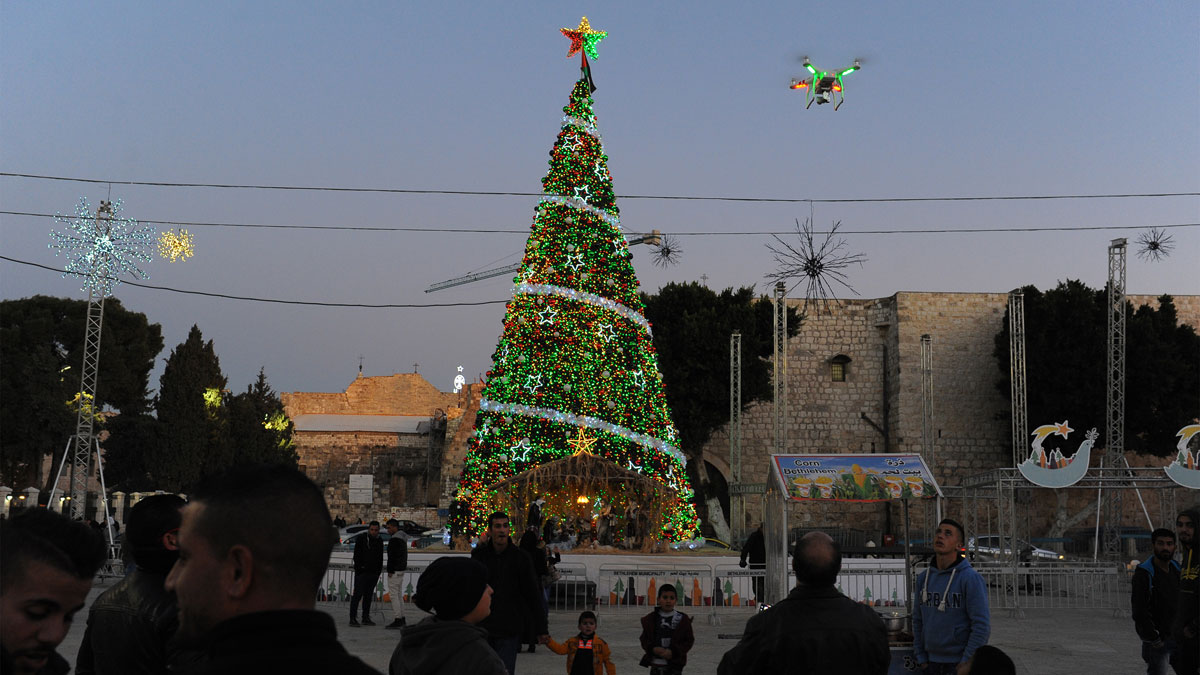
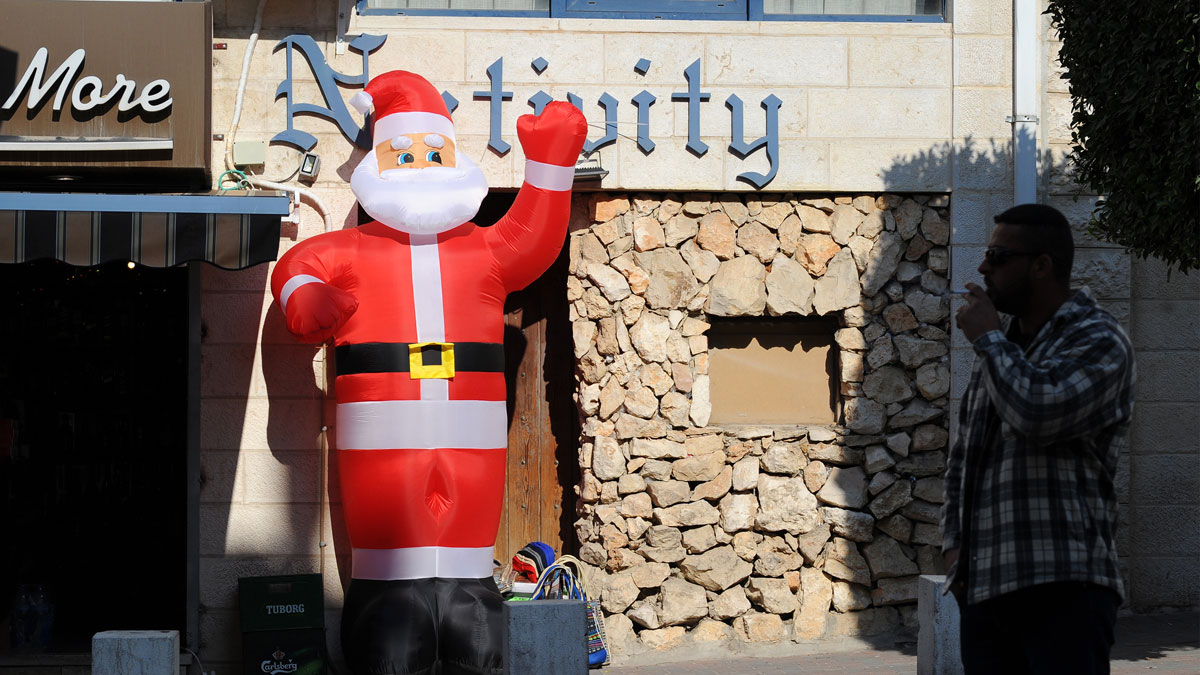
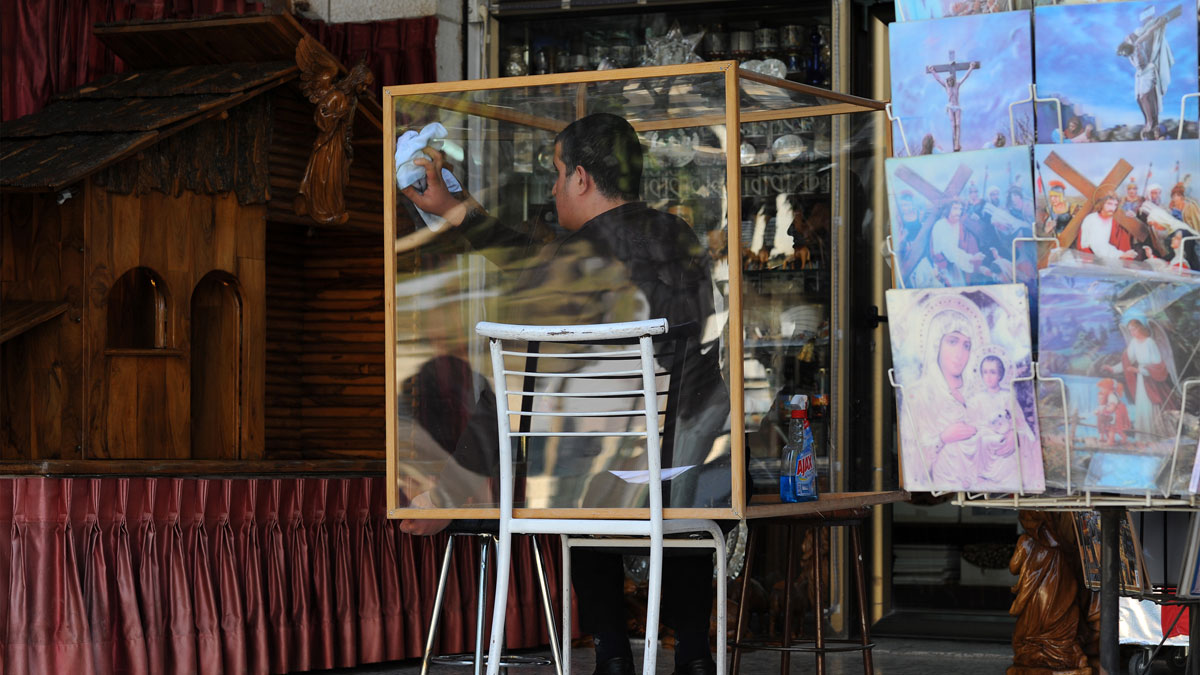
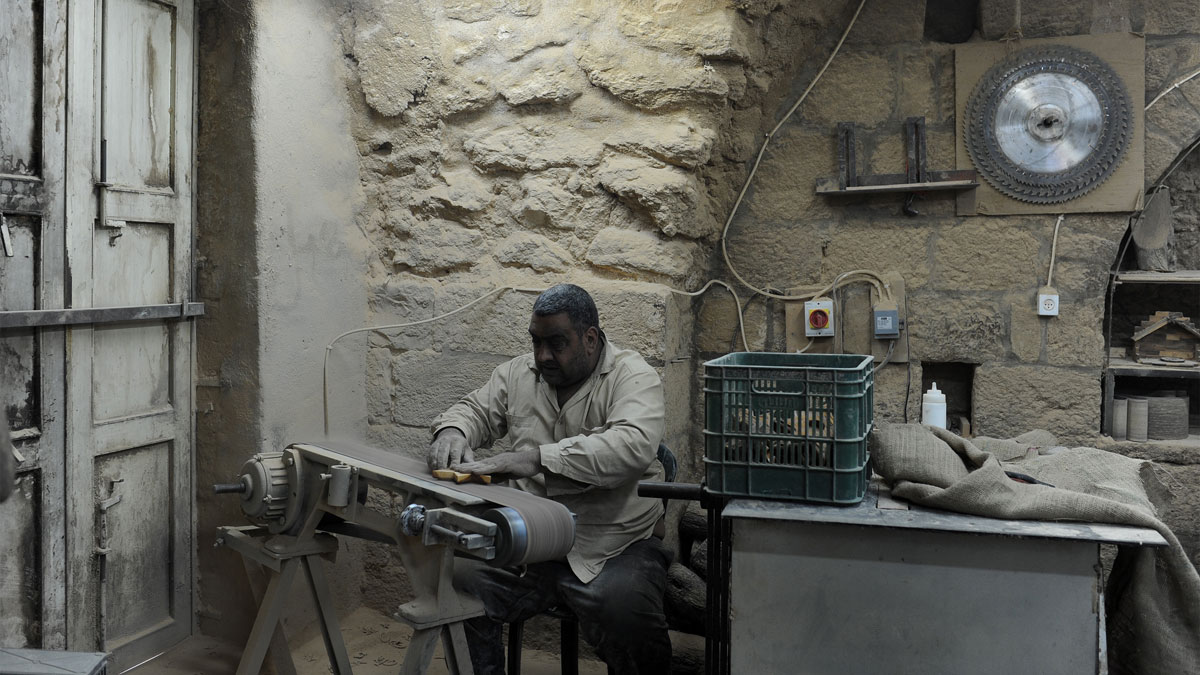
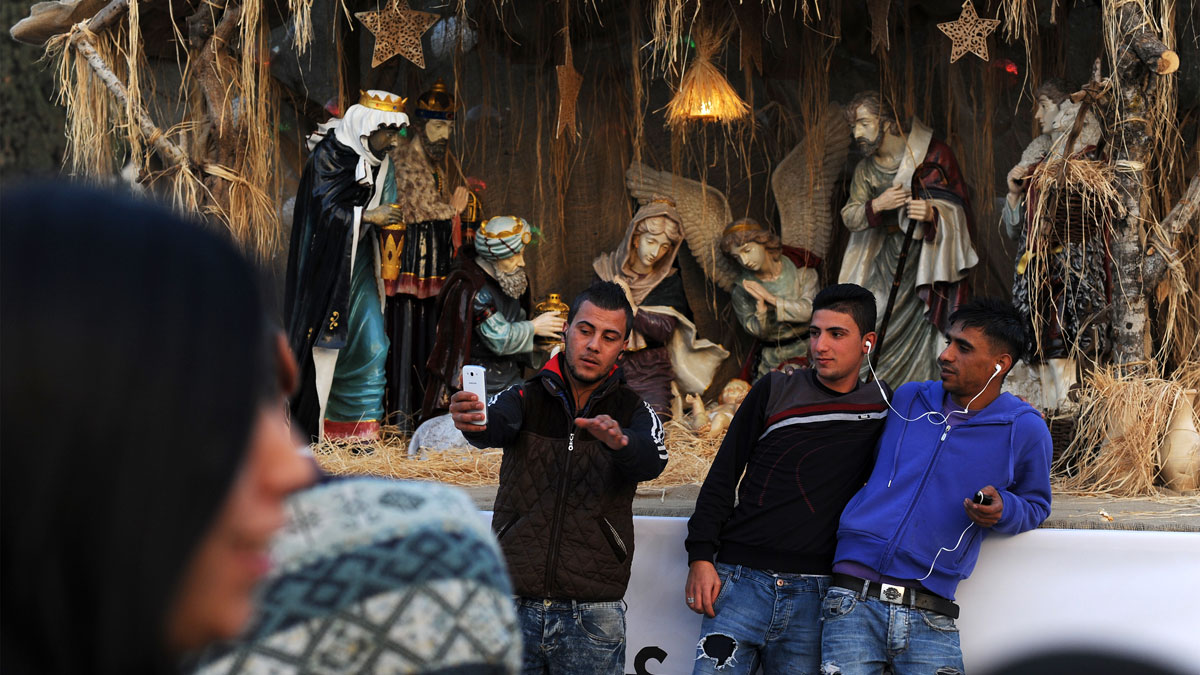
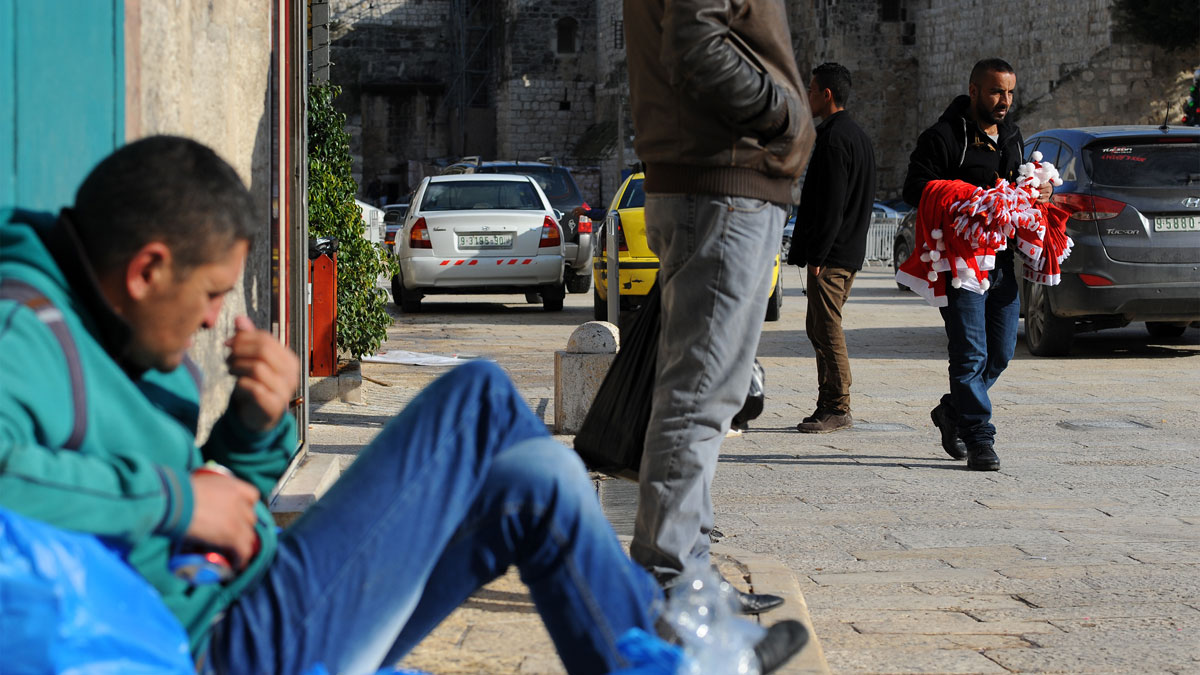
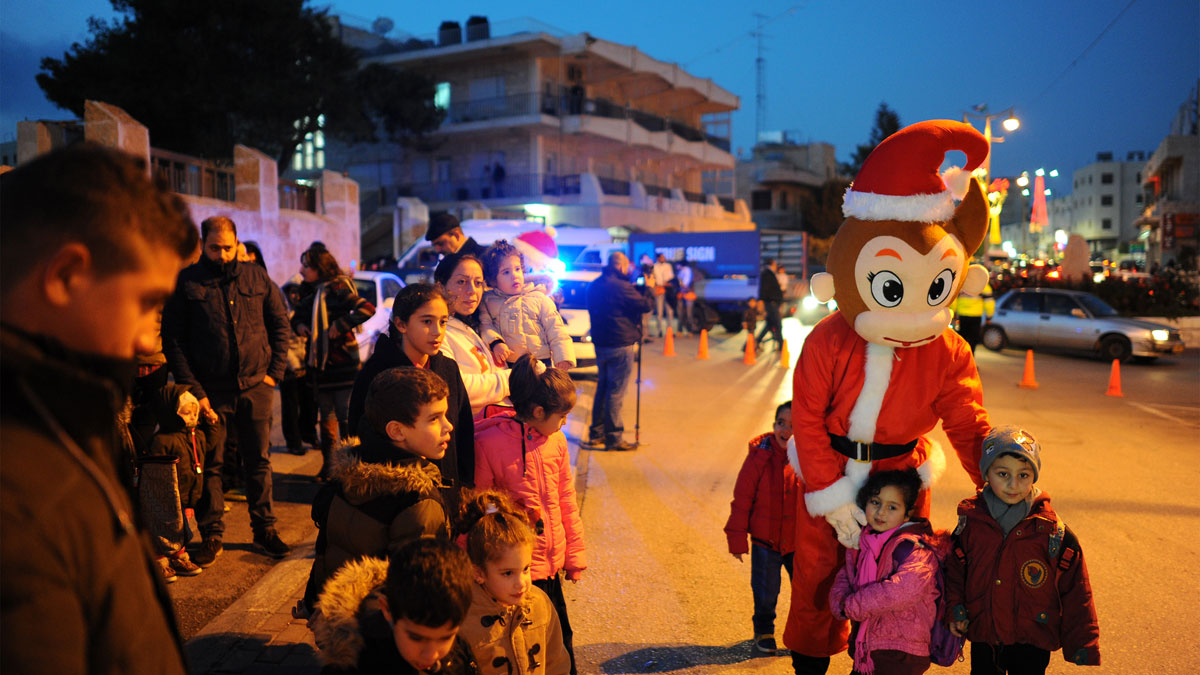
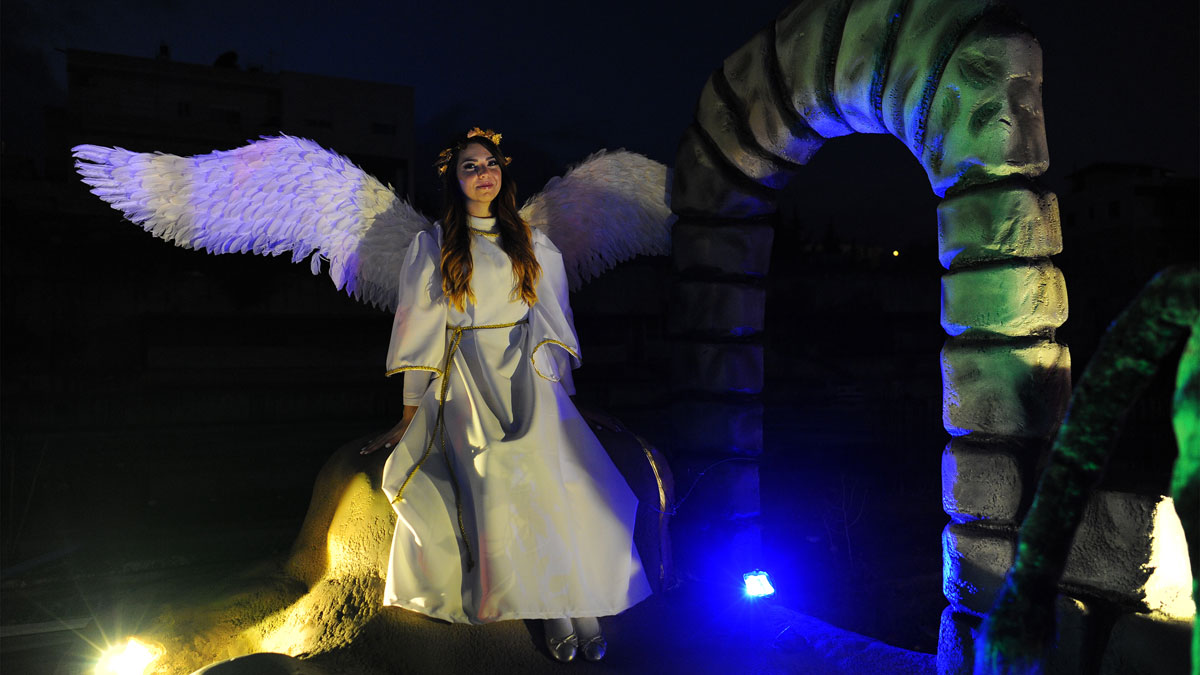
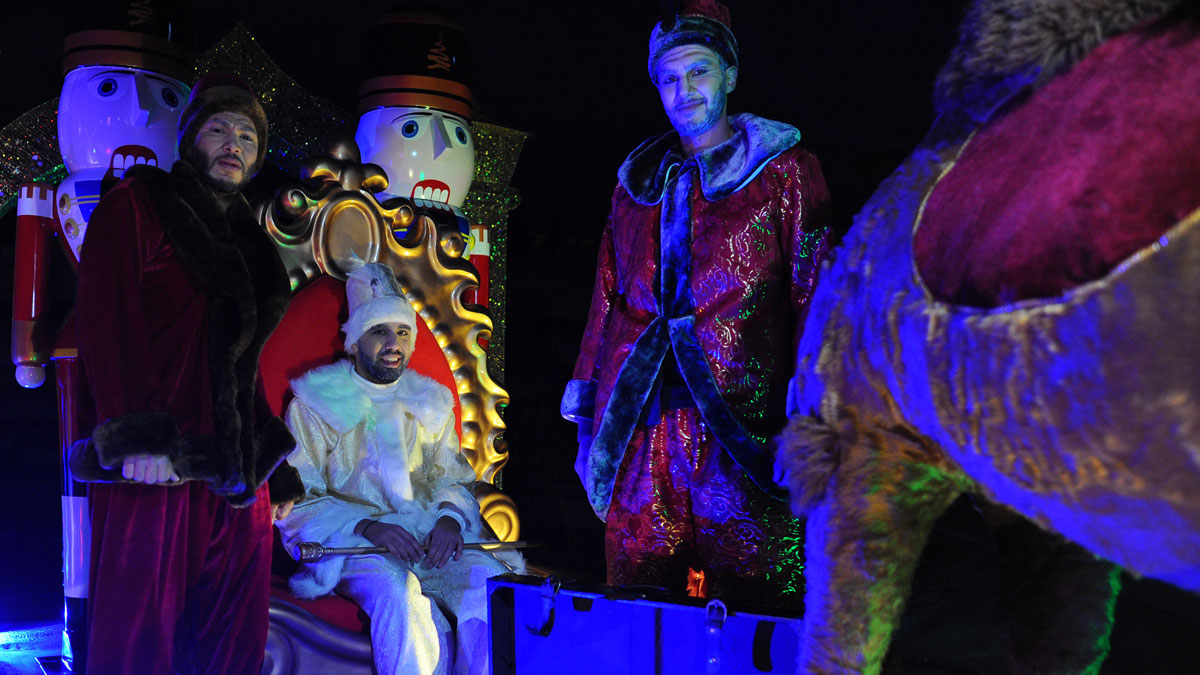
By Nigel Wilson
In the middle of Manger Square in the Old City of Bethlehem, a group of Palestinian teenage girls pose for selfies in front of a gigantic, shimmering Christmas tree.
Visiting from Nazareth, a Palestinian-majority city in Israel, the girls crack a few jokes, before moving around the tree for yet more selfies with the life-size nativity scene for a backdrop.
The Week
Escape your echo chamber. Get the facts behind the news, plus analysis from multiple perspectives.

Sign up for The Week's Free Newsletters
From our morning news briefing to a weekly Good News Newsletter, get the best of The Week delivered directly to your inbox.
From our morning news briefing to a weekly Good News Newsletter, get the best of The Week delivered directly to your inbox.
"I come to Bethlehem each year around Christmas time, with my family or my friends," said Hala, 22. "It's always so pretty here with all the lights and the tree. And it's nice that Muslims can come and share the experience together with Christians too."
It's a typical scene in Bethlehem's town square these days, where foreign tourists are conspicuously absent and the vast majority of visitors here are Palestinian families and youngsters.
The garish green, red and white lights in the square are also about as kitsch as it gets in Bethlehem this year, where secular festivities have been toned down considerably, due to an ongoing wave of political violence in Jerusalem and the West Bank.
"We didn't decorate the streets in Bethlehem except for Manger Square, Star Street and Manger Street," said Vera Baboun, the mayor of Bethlehem. "Things on the ground are really tough."
A free daily email with the biggest news stories of the day – and the best features from TheWeek.com
At least 117 Palestinians have been killed by Israeli forces since October, at least 69 of whom were described as assailants by Israeli authorities. Nineteen Israelis, three of whom were soldiers, have been killed by Palestinians in stabbing, shooting or car ramming attacks in the same period.

On December 8, 19-year-old Malek Shalin was shot dead by Israeli forces when they raided the Dheisheh refugee camp, close to Bethlehem. The Israeli military said at the time that soldiers had come under attack when they entered the camp. Shalin was the fourth Palestinian from Bethlehem to be killed in the past three months.
"Our Christmas this year is engulfed by the horrific situation on the ground," said Baboun, adding that the major religious festivals, processions and ceremonies will still be held in and around the city.
Each year on the afternoon of Christmas Eve, the Latin Patriarch leads the clergy from Jerusalem to Bethlehem, accompanied by groups of Palestinian boy scouts. Thousands typically line the route of the procession, which ends in Manger Square. Midnight Mass is then held at the Church of the Nativity, where Christians believe Jesus was born.
"The procession of the patriarch will definitely take place," said the mayor. "18 to 19 scout groups are participating. We're going to have the mass on the night of the 24th and we're going to have different groups participating in the Christmas night celebrations in Manger Square."
The celebrations on Christmas Eve and the day itself usually draw thousands of spectators and the mayor is unsure what to expect this year. Hotel occupancy in December is 11 per cent down on last year, she said.

"We still don't know whether the people will come this year and how many," said Baboun. "We spoke with the hotels and this year we are expecting 40 per cent occupancy, half foreign tourists and half Palestinians."
Off the main square, in the Blessings gift shop on Milk Street, Bassem Giacaman has just made his second sale of the day. His shop offers a range of traditional Palestinian crafts including olive wood statues, Christmas decorations, icons and locally made embroidery.
"There are two high seasons, Easter and Christmas, but this year none of them worked because of all the trouble you've been getting in Jerusalem and Gaza and all that. So it's been pretty dead," he says.
Giacaman moved to New Zealand in the 1980s but returned to Bethlehem four years ago to take over the family business, which includes an olive wood factory behind the gift store.
There, Giacaman's team makes statues, rosaries, tree decorations and chess sets using the wood from the iconic Palestinian olive trees, which dominate the hills and valleys around Bethlehem.
"This is my great grandfather. He started this business in 1925," says Giacaman, pointing to a large sepia photograph of a mustachioed craftsman at work. "He worked from home making olive wood rosaries. My grandfather worked with mother of pearl as well. My father went back to wood and so did I."
While Giacaman says that tourism has slumped each year he's been back, describing this year as "the worst of the worst," a few groups of tourists have passed through today. Patrick, an independent tourist from Austria who's staying in Jerusalem, is here to do some Christmas shopping for his family.
"I visited the Church of the Nativity and after that we went around a little bit in Bethlehem. It was an interesting experience," says Patrick. "I was thinking about whether I should come here or not but I made some investigations on the internet and I thought that it should be okay for tourists. So I came and it's been fine.
"Christmas time in Bethlehem is, of course, special."
-
 Minnesota's legal system buckles under Trump's ICE surge
Minnesota's legal system buckles under Trump's ICE surgeIN THE SPOTLIGHT Mass arrests and chaotic administration have pushed Twin Cities courts to the brink as lawyers and judges alike struggle to keep pace with ICE’s activity
-
 Big-time money squabbles: the conflict over California’s proposed billionaire tax
Big-time money squabbles: the conflict over California’s proposed billionaire taxTalking Points Californians worth more than $1.1 billion would pay a one-time 5% tax
-
 ‘The West needs people’
‘The West needs people’Instant Opinion Opinion, comment and editorials of the day
-
 Epstein files topple law CEO, roil UK government
Epstein files topple law CEO, roil UK governmentSpeed Read Peter Mandelson, Britain’s former ambassador to the US, is caught up in the scandal
-
 Iran and US prepare to meet after skirmishes
Iran and US prepare to meet after skirmishesSpeed Read The incident comes amid heightened tensions in the Middle East
-
 Israel retrieves final hostage’s body from Gaza
Israel retrieves final hostage’s body from GazaSpeed Read The 24-year-old police officer was killed during the initial Hamas attack
-
 China’s Xi targets top general in growing purge
China’s Xi targets top general in growing purgeSpeed Read Zhang Youxia is being investigated over ‘grave violations’ of the law
-
 Panama and Canada are negotiating over a crucial copper mine
Panama and Canada are negotiating over a crucial copper mineIn the Spotlight Panama is set to make a final decision on the mine this summer
-
 Why Greenland’s natural resources are nearly impossible to mine
Why Greenland’s natural resources are nearly impossible to mineThe Explainer The country’s natural landscape makes the task extremely difficult
-
 Iran cuts internet as protests escalate
Iran cuts internet as protests escalateSpeed Reada Government buildings across the country have been set on fire
-
 US nabs ‘shadow’ tanker claimed by Russia
US nabs ‘shadow’ tanker claimed by RussiaSpeed Read The ship was one of two vessels seized by the US military